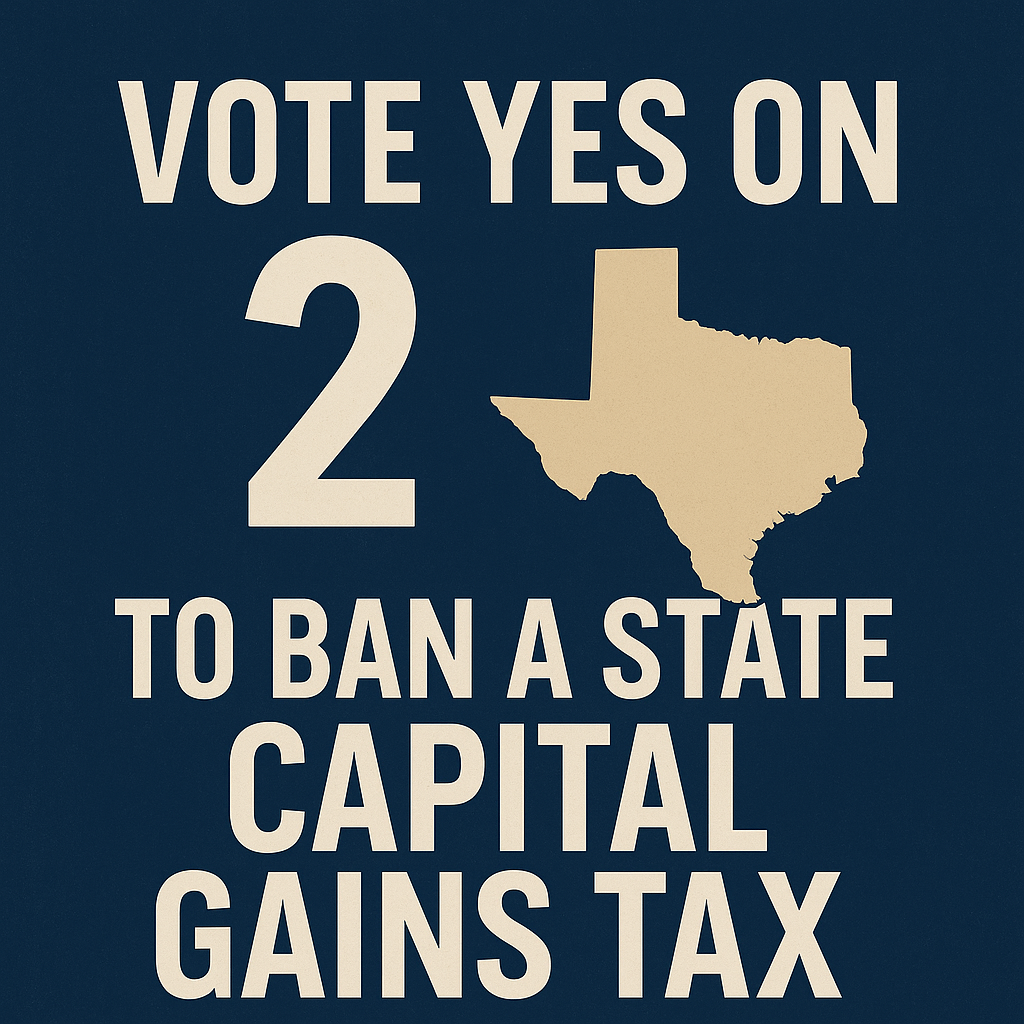Categories
Texas 2025 ballot measures, Texas capital gains tax ban, Texas Proposition 2Published August 15, 2025
Texas Proposition 2 (2025): What It Means for Capital Gains Taxes

Texas Proposition 2 (2025): Understanding the Capital Gains Ban Amendment
This November, Texans will vote on Proposition 2, a proposed constitutional amendment that could permanently ban the state from imposing a capital gains tax on individuals, families, estates, and trusts.
Important clarification:
Texas currently does not have a state-level capital gains tax—because the state does not impose a personal income tax at all. However, federal capital gains taxes still apply to Texans, just as they do in every state. Proposition 2 wouldn’t affect federal taxes—it’s only about preventing any future state capital gains tax from being enacted.
What Proposition 2 Says
If passed, Proposition 2 would amend the Texas Constitution to prohibit the state from imposing a tax on:
-
Realized capital gains (profits from the sale of assets like real estate, stocks, or businesses)
-
Unrealized capital gains (increases in value of assets you still own)
This prohibition would apply to individuals, families, estates, and trusts.
Why It Matters
1. Protecting Texas’s No-State-Income-Tax Advantage
Texas is one of the most attractive states for business owners, investors, and retirees because of its low-tax structure. Proposition 2 would ensure this competitive advantage stays in place.
2. Preventing Future State Tax Expansion
Without this amendment, a future legislature could introduce a state capital gains tax by passing a new law. With Prop 2, that would be unconstitutional—requiring another amendment and a vote by the people.
3. Economic Confidence
Locking in a no-state-capital-gains policy could encourage more investment in Texas real estate, small businesses, and entrepreneurship.
When Would It Take Effect?
-
Election Day: November 4, 2025
-
Effective Date (if approved): January 1, 2026
The Fiscal Impact
According to legislative estimates, the change would have a minimal budget impact—roughly $191,689 in administrative costs to put the measure on the ballot and a projected $304,000 biennial revenue shift to maintain school funding levels.
What’s Next?
If you’re a Texas voter, this is your opportunity to decide whether to embed a state capital gains tax ban in the Texas Constitution.
📌 Remember:
-
Registration deadline for the November 4, 2025 election is October 6, 2025.
-
Early voting begins October 20, 2025.
Bottom Line: Proposition 2 isn’t about changing today’s tax system—it’s about protecting it for the future. Whether you’re a homeowner, business owner, investor, or simply a taxpayer, this amendment could have long-term implications for Texas’s economic climate.





